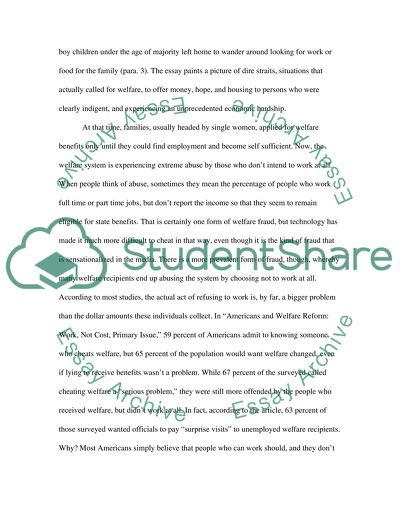Cite this document
(“Welfare: from hand up to hand out. Welfare in the United States Essay”, n.d.)
Welfare: from hand up to hand out. Welfare in the United States Essay. Retrieved from https://studentshare.org/sociology/1499173-welfare-from-hand-up-to-hand-out-welfare-in-the-united-states
Welfare: from hand up to hand out. Welfare in the United States Essay. Retrieved from https://studentshare.org/sociology/1499173-welfare-from-hand-up-to-hand-out-welfare-in-the-united-states
(Welfare: From Hand up to Hand Out. Welfare in the United States Essay)
Welfare: From Hand up to Hand Out. Welfare in the United States Essay. https://studentshare.org/sociology/1499173-welfare-from-hand-up-to-hand-out-welfare-in-the-united-states.
Welfare: From Hand up to Hand Out. Welfare in the United States Essay. https://studentshare.org/sociology/1499173-welfare-from-hand-up-to-hand-out-welfare-in-the-united-states.
“Welfare: From Hand up to Hand Out. Welfare in the United States Essay”, n.d. https://studentshare.org/sociology/1499173-welfare-from-hand-up-to-hand-out-welfare-in-the-united-states.


